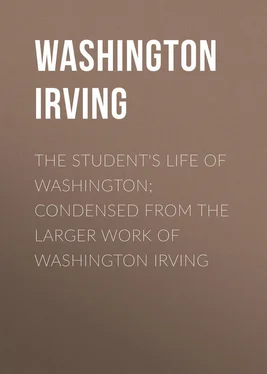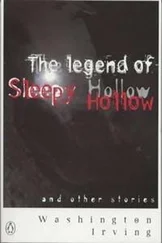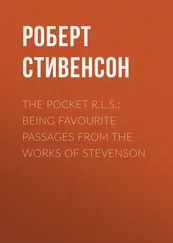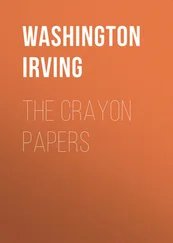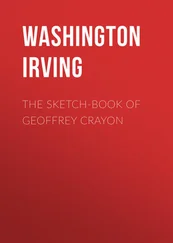Washington Irving - The Student's Life of Washington; Condensed from the Larger Work of Washington Irving
Здесь есть возможность читать онлайн «Washington Irving - The Student's Life of Washington; Condensed from the Larger Work of Washington Irving» — ознакомительный отрывок электронной книги совершенно бесплатно, а после прочтения отрывка купить полную версию. В некоторых случаях можно слушать аудио, скачать через торрент в формате fb2 и присутствует краткое содержание. Издательство: Иностранный паблик, Жанр: literature_19, foreign_antique, foreign_prose, на английском языке. Описание произведения, (предисловие) а так же отзывы посетителей доступны на портале библиотеки ЛибКат.
- Название:The Student's Life of Washington; Condensed from the Larger Work of Washington Irving
- Автор:
- Издательство:Иностранный паблик
- Жанр:
- Год:неизвестен
- ISBN:нет данных
- Рейтинг книги:3 / 5. Голосов: 1
-
Избранное:Добавить в избранное
- Отзывы:
-
Ваша оценка:
- 60
- 1
- 2
- 3
- 4
- 5
The Student's Life of Washington; Condensed from the Larger Work of Washington Irving: краткое содержание, описание и аннотация
Предлагаем к чтению аннотацию, описание, краткое содержание или предисловие (зависит от того, что написал сам автор книги «The Student's Life of Washington; Condensed from the Larger Work of Washington Irving»). Если вы не нашли необходимую информацию о книге — напишите в комментариях, мы постараемся отыскать её.
The Student's Life of Washington; Condensed from the Larger Work of Washington Irving — читать онлайн ознакомительный отрывок
Ниже представлен текст книги, разбитый по страницам. Система сохранения места последней прочитанной страницы, позволяет с удобством читать онлайн бесплатно книгу «The Student's Life of Washington; Condensed from the Larger Work of Washington Irving», без необходимости каждый раз заново искать на чём Вы остановились. Поставьте закладку, и сможете в любой момент перейти на страницу, на которой закончили чтение.
Интервал:
Закладка:
CHAPTER XIII.
COLONIAL DISCONTENTS
Tidings of peace gladdened the colonies in the spring of 1763. The definite treaty between England and France had been signed at Fontainbleau. Now, it was trusted, there would be an end to these horrid ravages that had desolated the interior of the country. The month of May proved the fallacy of such hopes. In that month the famous insurrection of the Indian tribes broke out, which, from the name of the chief who was its prime mover and master-spirit, is commonly called Pontiac's war. The Delawares and Shawnees, and other of those emigrant tribes of the Ohio, among whom Washington had mingled, were foremost in this conspiracy. Some of the chiefs who had been his allies had now taken up the hatchet against the English. The plot was deep laid, and conducted with Indian craft and secrecy. At a concerted time an attack was made upon all the posts from Detroit to Fort Pitt (late Fort Duquesne). Several of the small stockaded forts, the places of refuge of woodland neighborhoods, were surprised and sacked with remorseless butchery. The frontiers of Pennsylvania, Maryland and Virginia were laid waste; and a considerable time elapsed before the frontier was restored to tolerable tranquility.
Fortunately, Washington's retirement from the army prevented his being entangled in this savage war, which raged throughout the regions he had repeatedly visited, or rather his active spirit had been diverted into a more peaceful channel, for he was at this time occupied in the enterprise just noticed, for draining the great Dismal Swamp.
Public events were now taking a tendency which, without any political aspirations or forethought of his own, was destined gradually to bear him away from his quiet home and individual pursuits, and launch him upon a grander and wider sphere of action than any in which he had hitherto been engaged.
Whatever might be the natural affection of the colonies for the mother country – and there are abundant evidences to prove that it was deep-rooted and strong – it had never been properly reciprocated. They yearned to be considered as children; they were treated by her as changelings. Her navigation laws had shut their ports against foreign vessels; obliged them to export their productions only to countries belonging to the British crown; to import European goods solely from England, and in English ships; and had subjected the trade between the colonies to duties. All manufactures, too, in the colonies that might interfere with those of the mother country had been either totally prohibited or subjected to intolerable restraints. The acts of Parliament imposing these prohibitions and restrictions had at various times produced sore discontent and opposition on the part of the colonies. There was nothing, however, to which the jealous sensibilities of the colonies were more alive than to any attempt of the mother country to draw a revenue from them by taxation. From the earliest period of their existence they had maintained the principle that they could only be taxed by a Legislature in which they were represented.
In 1760 there was an attempt in Boston to collect duties on foreign sugar and molasses imported into the colonies. Writs of assistance were applied for by the custom-house officers, authorizing them to break open ships, stores and private dwellings, in quest of articles that had paid no duty; and to call the assistance of others in the discharge of their odious task. The merchants opposed the execution of the writ on constitutional grounds. The question was argued in court, where James Otis spoke so eloquently in vindication of American rights that all his hearers went away ready to take arms against writs of assistance. Another ministerial measure was to instruct the provincial governors to commission judges. Not as theretofore "during good behavior," but "during the king's pleasure." New York was the first to resent this blow at the independence of the judiciary. The lawyers appealed to the public through the press against an act which subjected the halls of justice to the prerogative. Their appeals were felt beyond the bounds of the province, and awakened a general spirit of resistance.
Thus matters stood at the conclusion of the war. One of the first measures of ministers, on the return of peace, was to enjoin on all naval officers stationed on the coasts of the American colonies the performance, under oath, of the duties of custom-house officers, for the suppression of smuggling. This fell ruinously upon a clandestine trade which had long been connived at between the English and Spanish colonies, profitable to both, but especially to the former, and beneficial to the mother country, opening a market to her manufactures. As a measure of retaliation the colonists resolved not to purchase British fabrics, but to clothe themselves as much as possible in home manufactures. The demand for British goods in Boston alone was diminished upwards of £10,000 sterling in the course of a year.
In 1764 George Grenville, now at the head of government, ventured upon the policy from which Walpole [his predecessor] had wisely abstained. Early in March the eventful question was debated, "whether they had a right to tax America." It was decided in the affirmative. Next followed a resolution, declaring it proper to charge certain stamp duties in the colonies and plantations, but no immediate step was taken to carry it into effect. Mr. Grenville, however, gave notice to the American agents in London that he should introduce such a measure on the ensuing session of Parliament. In the meantime Parliament perpetuated certain duties on sugar and molasses – heretofore subjects of complaint and opposition – now reduced and modified so as to discourage smuggling, and thereby to render them more productive. Duties, also, were imposed on other articles of foreign produce or manufacture imported into the colonies. To reconcile the latter to these impositions, it was stated that the revenue thus raised was to be appropriated to their protection and security; in other words, to the support of a standing army, intended to be quartered upon them. We have here briefly stated but a part of what Burke terms an "infinite variety of paper chains," extending through no less than twenty-nine acts of Parliament, from 1660 to 1764, by which the colonies had been held in thraldom.
The New Englanders were the first to take the field against the project of taxation. They denounced it as a violation of their rights as freemen; of their chartered rights, by which they were to tax themselves for their support and defence; of their rights as British subjects, who ought not to be taxed but by themselves or their representatives. They sent petitions and remonstrances on the subject to the king, the lords and the commons, in which they were seconded by New York and Virginia. All was in vain. In March, 1765, the act was passed, according to which all instruments in writing were to be executed on stamped paper, to be purchased from the agents of the British government. What was more, all offences against the act could be tried in any royal, marine or admiralty court throughout the colonies, however distant from the place where the offence had been committed; thus interfering with that most inestimable right, a trial by jury.
It was an ominous sign that the first burst of opposition to this act should take place in Virginia. That colony had hitherto been slow to accord with the republican spirit of New England. Founded at an earlier period of the reign of James I., before kingly prerogative and ecclesiastical supremacy had been made matters of doubt and fierce dispute, it had grown up in loyal attachment to king, church, and constitution; was aristocratical in its tastes and habits, and had been remarked above all the other colonies for its sympathies with the mother country. Moreover, it had not so many pecuniary interests involved in these questions as had the people of New England, being an agricultural rather than a commercial province; but the Virginians are of a quick and generous spirit, readily aroused on all points of honorable pride, and they resented the stamp act as an outrage on their rights.
Читать дальшеИнтервал:
Закладка:
Похожие книги на «The Student's Life of Washington; Condensed from the Larger Work of Washington Irving»
Представляем Вашему вниманию похожие книги на «The Student's Life of Washington; Condensed from the Larger Work of Washington Irving» списком для выбора. Мы отобрали схожую по названию и смыслу литературу в надежде предоставить читателям больше вариантов отыскать новые, интересные, ещё непрочитанные произведения.
Обсуждение, отзывы о книге «The Student's Life of Washington; Condensed from the Larger Work of Washington Irving» и просто собственные мнения читателей. Оставьте ваши комментарии, напишите, что Вы думаете о произведении, его смысле или главных героях. Укажите что конкретно понравилось, а что нет, и почему Вы так считаете.
